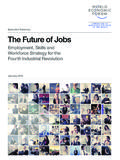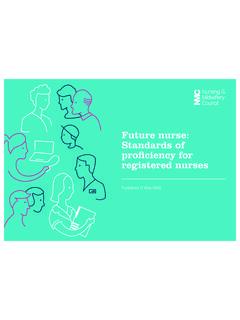Transcription of 21st Century Learning: Research, Innovation and Policy
1 OECD/CERI International Conference learning in the 21st Century : research , Innovation and Policy . 21st Century learning : research , Innovation and Policy Directions from recent OECD analyses ORGANISATION. ORGANISATIONF OR. F OR. E CONOMIC. E CONOMIC ORGANISATION. ORGANISATION. DE COOP RATION. DE COOP RATION. ET ET. CO-OPERATION. CO-OPERATION. AND. AND. development . development DE DE. D VELOPPEMENT. D VELOPPEMENT. CONOMIQUES. CONOMIQUES. 21st Century learning : research , Innovation AND Policy . DIRECTIONS FROM RECENT OECD ANALYSES. learning is central in knowledge-based societies and economies. In many countries there is a push to reflect this by ensuring that reforms of the education system focus more strongly on learning itself rather than simply changing structures and educational organisation. But what does a focus on learning ' mean in concrete terms? Why is it important? And crucially, is the knowledge base on learning strong enough to help Policy -makers shape their direction of educational change?
2 This paper aims to shed light on these questions and provide directions from recent OECD. educational analyses. Rationales for Closer Focus on learning and on Change The Need for Lifelong learning The inevitability of lifelong learning in knowledge-oriented societies implies that school systems should have different objectives and characteristics than if education were considered to have been completed when a student leaves initial education. Yet in practice, there remains a tendency for school education to be assessed in terms of the achievements and targets that systems have set themselves, rather than their broader success in laying the foundation for lifelong learning . In the knowledge economy, memorization of facts and procedures is not enough for success. Educated workers need a conceptual understanding of complex concepts, and the ability to work with them creatively to generate new ideas, new theories, new products, and new knowledge.
3 They need to be able critically to evaluate what they read, be able to express themselves clearly both verbally and in writing, and understand scientific and mathematical thinking. They need to learn integrated and usable knowledge, rather than the sets of compartmentalised and de-contextualised facts. They need to be able to take responsibility for their own continuing, life-long learning . What PISA has to say According to PISA, school systems are not outstandingly successful in preparing students for the kinds of abilities and skills that build the foundation for lifelong learning . PISA attainments shed light on this question as they are based on a dynamic model in which new knowledge and skills necessary for successful adaptation to a changing world are continuously acquired throughout life (PISA, 2003b), rather than measuring achievement in terms of specific curricula.
4 With its focus on reading, mathematical and scientific literacy , PISA emphasises the mastery of processes, the understanding of concepts, and the ability to function in different situations in each domain, rather than the possession of specific For instance, in only 5 OECD countries do more than two-thirds of young people reach or surpass PISA level 3 in reading literacy - the level which involves comprehension and interpretation of moderately complex text. (The 5 countries are: Canada, Finland, Ireland, Korea, and New Zealand.) The average across OECD countries is attaining level 3 or above. In 17 OECD countries, 40% or more do not 1.. PISA (Programme for International Student Assessment), has measured the outcomes of education systems at the end of compulsory schooling and related factors every three years since 2000, involving well over 1 million 15-year-olds surveyed and over 60 countries.
5 1. achieve at the level 3 threshold in reading literacy, and these low-performing students are in the majority in four of these countries. The countries which have 40% or more achieving at best at level 2 are Austria, the Czech Republic, Denmark, France, Germany, Greece, Hungary, Iceland, Italy, Luxembourg, Mexico, Norway, Portugal, the Slovak Republic, Spain, Turkey, and the United Kingdom. They are the majority of students in Greece, Italy, Mexico, Portugal, the Slovak Republic, Spain, and Turkey. [PISA2006, Chapter 6]. Regarding problem-solving, around a fifth of the students in all OECD countries in 2003 could be considered reflective, communicative problem-solvers , who are able to analyse a situation, make decisions and manage multiple conditions simultaneously, with just under a third being reasoning, decision-making problem-solvers and a third counted as basic problem solvers.
6 This leaves around 16 % considered as weak or emergent problem-solvers , who are generally unable to analyse situations or solve problems that call for more than the direct collection of information. Hence, the PISA results provide a prime facie case in that too many students are not well prepared for the knowledge society in terms of the different literacies and problem-solving abilities. These arguments are supported by many analysts working in the learning sciences. The learning Sciences Argument When learning scientists (Sawyer, 2006) first went into classrooms, they discovered that most schools were not teaching the deep knowledge that underlies knowledge work. By the 1980s, cognitive scientists had discovered that children retain material better, and are able to generalise it to a broader range of contexts, when they learn deep knowledge rather than surface knowledge, and when they learn how to use that knowledge in real-world social and practical settings.
7 Thus, learning scientists began to argue that standard model schools were not aligned with the knowledge economy. A set of key findings has emerged from learning sciences research : the importance of learning deeper conceptual understanding, rather than superficial facts and procedures, the importance of learning connected and coherent knowledge, rather than knowledge compartmentalized into distinct subjects and courses, the importance of learning authentic knowledge in its context of use, rather than decontextualized classroom exercises and the importance of learning collaboratively, rather than in isolation. Traditional models of schooling which are not in line with these key findings and, so runs this argument, are thus not well suited to our knowledge economies and societies. Therefore, learning scientists are calling for a change of today s schools. The Call for New Approaches from Schooling for Tomorrow.
8 A radical change with a strong focus on learning has not only been called for by learning scientists, but also by some very near to Policy -making at different times in the Schooling for Tomorrow programme. The keynote address of Michael Barber to the 2000 Rotterdam Conference, for instance, argued from new driving forces to new models in the following terms: The explosion of knowledge about the brain and the nature of learning , combined with the growing power of technology, create the potential to transform even the most fundamental unit of education - the interaction of the teacher and the learner. Moreover, huge social changes, such as growing diversity and population mobility, present educators with new and constantly changing circumstances. As a result, the characteristics which defined the successful education systems of, say, 1975, are unlikely to be those which will define success in the future.
9 (OECD 2003a: 115). 2. More recently, the need to search for new approaches was articulated forcefully in the conclusions of the Toronto Schooling for Tomorrow Forum in June 2004, especially by one of the Canadian rapporteurs, Raymond Daigle: For the past 15 years or so, a number of industrialised countries have been implementing sweeping and costly reforms. Although there was some real initial progress, these reforms have ultimately come up against a wall, or rather a ceiling, beyond which further progress seems impossible, leading increasing numbers of school administrators and educators to wonder whether schools do not need to be reformed but to be reinvented. (OECD 2006a: 187-188). Like Barber s focus on the interaction of teacher and learner, Daigle talks about the micro level the organisation of teaching and learning in the place we call the school . He does not suppose that the school is necessarily an institution of formal schooling; for if it is to be reinvented it can refer to all number of arrangements through which organised, deliberate learning might take place.
10 The views of these particular commentators of the need for different approaches to education . reinvention in Daigle s words share the fundamental belief and are in line with the argument of the learning scientists that the most fruitful area to search for new approaches will lie in close attention to the nature of learning itself. Insights from CERI and Related OECD Studies on learning There have been a number of projects in the Education Directorate of the OECD and in CERI in particular that give insights on learning and provide directions for educational change that is focussing on learning . The projects and their main findings will be presented in this section. The Neuro-scientific Study of learning The purpose of the CERI project on learning Sciences and Brain research was to encourage collaboration between learning sciences and brain research on the one hand, and researchers and Policy makers on the other hand.














